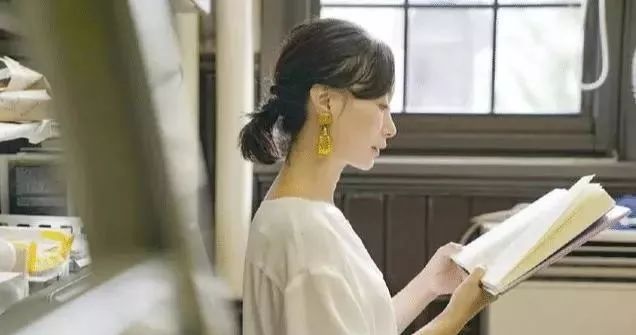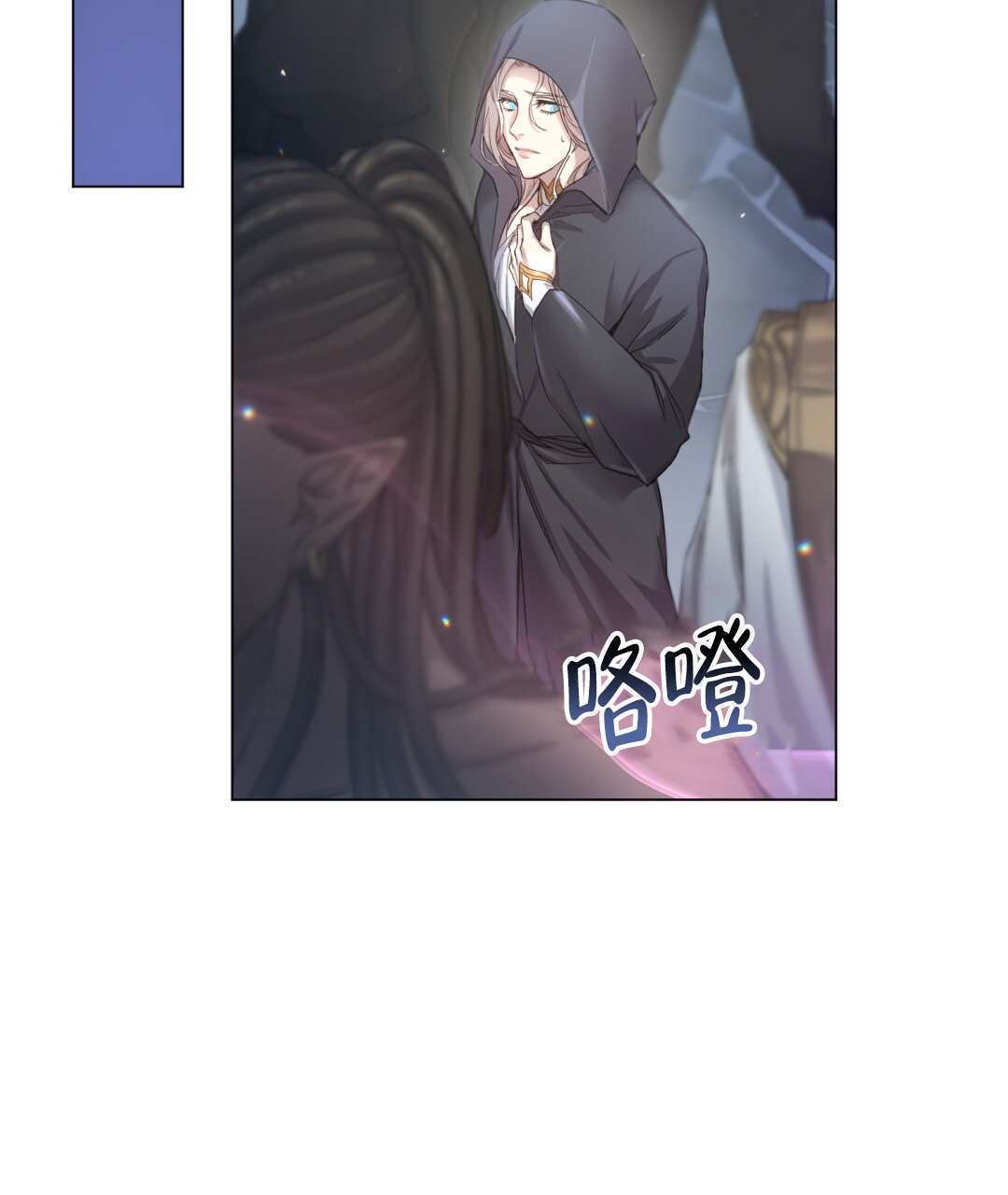人教版英语七年级上册Unit 4 单元知识点精讲

Section A
1.table 桌子(教材第19页)
table 可数名词,意为“桌子”。
There is a table in my room. 在我房间里有一张桌子。
[拓展]at table 在进餐,在吃饭
at the table 在桌子旁边
辨析:table 与 desk
table
指“圆桌;饭桌”,是用餐,会谈或消遣时所用的桌子,可以是方形的,圆形的。
一般不带抽屉
A table for two,please.请安排两人一桌的位子。
desk
指“书桌;课桌”式读书,办公时所用的桌子
一般带有抽屉
There are many desks in our classroom.
在我们的教室里有许多书桌。
2.Where are my books?我的书在哪里?(教材第19页)
where 疑问副词,意为“在哪里”,用来引导特殊疑问句。句型“Where+be+主语?”用来询问“某人或某物在哪里”,主语为第三人称单数时,动词be用is;主语为第二人称或复数时,动词be用are。在回答该句型时,用“主语+be+表示地点的介词短语”这一结构,有时也可直接用“表示地点的介词短语”回答。答语中的主语一般用人称代词代替,避免与前面问句中的名词重复。
——Where is your father?你爸爸在哪里?
——He is in his room.他在他的房间里。
——Where are your keys? 你的钥匙在哪里?
——They are on the table.它们在桌子上。
3.They’re on the sofa.他们在沙发上。(教材第19页)
(1)they是人称代词主格,意为“他们;她们;它们”,是人称代词he,she或it的复数形式。常用来指代复数的人或物。
These boys are my brothers.They are students.
这些男孩是我的兄弟,他们是学生。(they指代my brothers)
I have two books。They are interesting.我有两本书,它们很有趣。(they 指代two books)
Helen and Mary are good friends. ______ often help each other.
A. Them B. Theirs C.They D.Their
解析:我们可采用“语法分析法”解答本题。them“她(他/它)们”,宾语形式;theirs“她(他/它)们的”,名词性物主代词;they“她(他/它)们”,主格形式;their“她(他/它)们的”形容词物主代词。此处需要作主语的人称代词指代Helen and Mary,所以用人称代词的主格形式they。 答案:C
(2)on 介词,意为“在……上”,其后常接名词或代词构成介词短语,表示位置关系,强调一物在另一物的表面上,且两物体有接触面。
The pictures are on the wall.图画在墙上。
(3)sofa名词,意为“沙发”,是一个根据英语读音而翻译出来的音译词。
[拓展]英语中常见的音译词还有
jeep 吉普车 cartoon 卡通
chocolate 巧克力 coffee 咖啡
4.It’s under your bed.它在你的床下面。(教材第19页)
(1)under介词,意为“在……下”,其后常接名词或代词构成介词短语,表示位置关系,通常用于指位于某物的正下方,且两物体不接触。
The car is under the tree.这辆小汽车在树下面。
My shoes are under the bed.我的鞋子在床下面。
[拓展]bedroom卧室 go to bed 上床睡觉
make the bed 整理床铺
5.Come on,Jack!快点儿,杰克!(教材第20页)
(1)come on此处表示催促,意为“赶快,快点儿”。英语中还可以用Hurry up!表示催促。
Come on.It’s dark.快点儿,天黑了。
[拓展]come on 的其他含义
1)用来表示请求,鼓励,劝说等,意为“来吧;行啦。”。
Come on,Kate.Don’t be shy.来吧,凯特。别害羞。
2)用来体育竞赛等场合鼓励队员,意为“加油”。
“Come on! Come on!” shouted the students.“加油!加油!”学生大声喊道。
3)用于挑战和激怒对方,意为“来吧;好吧;试试吧”。
Come on!I’m not afraid od you.来吧!我不怕你。
4)用于招呼别人,意为“来,过来”。
Come on!This way,please.来,请走这边。
(2)come 作不及物动词,意为“来;来到”,反义词为go,意为“去”。
Come to my house this Sunday,please.这个星期天请来我家。
6.I think it’s in your grandparents’room.我认为它在你(外)祖父的房间里。(教材第20 页)
(1) I think…意为“我认为……”,此结构用来表述自己的主观想法或对事物的看法,后面常接that引导的带有主谓结构的句子,在口语中that可省略。
I think (that) the keys are Alice’s.我认为这些钥匙是艾丽斯的。
注意:I think … 的否定形式为“I don’t think…”,意为“我认为……不……”
I don’t think he is right.我认为他不对。
(2)think 动词,意为“认为,想;思考”。
I think the baseball is Bill’s.
(3)grandparents’是复数名词grandparents的所有格,意为“(外)祖父母的”。以-s结尾的复数名词,直接在结尾加“‘”构成名词的所有格。
My schoolbag is in my parents’room.我的书包在我父母的房间里。
[拓展]名词所有格的构成方法:
1)一般情况下,在单数名词的词尾加“ ‘s”。
Jim’s book 吉姆的书
2)以-s结尾的复数名词在词尾加“ ‘”。
the students’basketball 学生们的篮球
3)不以-s结尾的复数名词在词尾加“ ‘s”。
Children’s Day 儿童节 men’s clothes 男装
注意:一般情况下,名词词尾加‘s后,在清辅音后/s/;在浊辅音或元音后读/z/。
4)表示两个人(或多人)共有某人或某物是,只在最后一个名词的词尾加“‘s”;如果为各自所有,每个名词词尾都要加“是”
Kate and Mary’s room 凯特和玛丽的房间(共同拥有的房间)
Kate’s and Mary’s rooms 凯特的房间和玛丽的房间(各自拥有的房间)
7.And my hat? 那我的帽子?(教材第20页)
(1)这是一个省略句,其完整形式为“And where is my hat?”.
——Where is my pen,Bob? 鲍勃,你的钢笔在哪里?
——It’s in the pencil box. 他在铅笔盒利。
——And your ruler? 你的尺子呢?
——It’s on the desk.它在书桌上。
注意:在英语口语中,为了使语言简洁明了,在不引起歧义的情况下,可根据语境省去与上文相同的内容,而用and来连接。
(2)hat可数名词,意为“帽子”,常指带檐的帽子。
Jenny’s hat is red.珍妮的帽子是红色的。
8.I don’t know. 我不知道。(教材第21页)
(1)对他人的询问或提出的问题,若不知道或不清楚时,常用I don’t know.回答。日常交际中,通常在前面加上sorry或I’m sorry.这样显得礼貌,客气。
——Where is my watch? 我的手表在哪里?
——I don’t know.我不知道。
——Where is Li Ping?李平在哪里?
——Sorry,I don’t know.对不起,我不知道。
(2)don’t为助动词do与not的缩写形式。含有实义动词的句子在变成疑问句或否定句时,需借助助动词do 或does。
1)
section B
1.radio 收音机(教材第22页)
radio此处为可数名词,意为“收音机”,复数形式为radios。
—My grandfather has two radios. 我的爷爷有两台收音机。
[拓展]以o结尾的名词变复数时,可以在词尾直接加-s的单词有:zoo 动物园;kangaroo 袋鼠;bamboo 竹子;photo 照片;radio 收音机;piano 钢琴等。
助记
以o结尾复数形式应加-s的名词
袋鼠在动物园里一边观看竹子的照片,一边聆听收音机里的钢琴声。
2.clock 时钟(教材第22页)
Clock 可数名词,意为“时钟”。
—There is a clock on the wall. 墙上有一个时钟。
注意
clock与o’clock在形式上只有很小的差别,但意义不同:clock的意思是“钟表”,而oclock的意思是“点钟”,表示整点。如five o’clock “5点钟”
辨析clock与watch
clock指挂钟,闹钟,或建在钟楼,钟塔的钟表等。
watch指手表,怀表或者秒表等。
3.tape player 磁带播放机(教材第22页)
Player此处用作可数名词,意为“播放机”,是由“play(播放)+er”构成的。
—a CD player 一台CD播放机
—a video player 一台录像播放机
[拓展]
Player 用作名词时还可意为“运动员,选手,球员”。
—a basketball player 一名篮球运动员
4. I’m tidy,but Gina is not. 我爱整洁,但是吉娜不(整洁)。(教材23页)
(1)tidy此处用作形容词,意为“整洁的,仅仅有条的”,即可放在连系动词的后面作表语,也可放在名词之前作定语。常见短语:keep tidy 意为“保持整洁”。Tidy的反义词为 untidy,意为“不整洁的,凌乱的”。
—The room is very tidy. 这个房间很整洁。
—I like keeping tidy. 我喜欢保持整洁。
—He is a tidy boy. 他是一个爱整洁的男孩。
—John’s room is very untidy. 约翰的房间非常乱。
【拓展】
Tidy作动词,意为“使整洁”,后面可接名词或代词作宾语。
—Tidy you room,Tom. 汤姆,收拾好你的房间。
but 连词,意为“但是”,可以连接两个并列成分(单词,短语或分句),表示前后意义上的转折或两种情况的对比。
—My books are on the desk,but hers aren’t.
我的书在书桌上,但是她的不在。
辨析:but与and
两者均为连词,可连接两个独立的单词,短语或并列分句,其具体区分如下:
but
表示转折的逻辑关系或两种情况的对比,意为“但是”
I know his name,but I don’t know his phone number. 我知道他的名字,但是我不知道他的手机号。
and
表示顺承或并列的逻辑关系,意为“和;并列”
I have a clock and it’s on the desk. 我有一个闹钟,它在书桌上。
Going to the movies is good,______I really only like listening to music.
A. and B. but C. so D. or
解析:我们可采用“句意分析法”解答本题。由句意“看电影很好”和“我真的只喜欢听音乐”可知前后两个部分是转折关系,故用连词but。
5.Gina’s books are everywhere-on the bed,on the sofa and under the chair.
吉娜的书到处都是—在塔的床上,在沙发上,还有在椅子下面。 (教材第23页)
everywhere 副词,意为“处处,到处,各个地方”,相当于 here and there。
助记:
Every(每个)+where(在哪里)→every-where(处处,到处)
—In spring,we can see flowers everywhere. 在春天,我们到处都能看到花。
—The balls are everywhere. 球到处都是。
...Gina always asks. ....吉娜总是问。(教材23页)
always 副词,意为“总是”,常用在一般现在时句子中,表示动作发生的概率。
注意:always与be动词连用时,放在be动词之后;与实义动词连用时,则放在实义动词之前。
—The boy is always late for school. 这个男孩总是上学迟到。
—She always likes to ask why. 她总是喜欢问为什么。
【拓展】
常见的表示频率的副词还有:usually 通常,often 经常,sometimes 有时,ever 曾经,never从不。
同步练习
一、单项选择(每小题1分,共15分)
1.—Wheres my pencil box?
—I ______ know.
A.arent B.dont C.isnt D.be not
2.—Where are your computer games?
—______ are in my schoolbag.
A.I B.You C.He D.They
3.The pencil box is ______ the bed but the schoolbag is ______ the bed.
A.in;on B.on;on
C.of;under D.on;under
4.The apples are ______ the tree and the bird is ______ the tree.
A.on;in B.in;on C.in;in D.on;on
5.—Are your books on the desk?
—No,______.
A.they are B.they arent
C.it isnt D.it is
6.______ is my watch.
A.These B.Those C.This D.They
7.—______?
—They are tables.
A.What are they B.Whats this
C.How are you D.Where are they
8.—Wheres your brother?
—He is ______.
A.in home B.at the school
C.at home D.on school
9.—Is this ______ book?
—No,it isnt.I think its Jims.
A.your B.she C.it D.he
10.I ask for some ______.
A.English book B.English books
C.thing D.pencil box
11.—______ is my skirt?
—Its behind the door.
A.Where B.What C.Whose D.Which
12.There are many pictures ______ the wall.
A.from B.on C.about D.in
13.Here are some ______ of Lindas family.
A.photo B.photoesC.photos D.a photo
14.This eraser isnt ______.Its ______.
A.my;his B.mine;hisC.his;her D.her;mine
15.______,boys;you can win(赢).
A.Come in B.Come toC.Come on D.Lets
Ⅱ.完形填空(每小题2分,共20分)
My name is Grace.Look!This is a picture of __1__ family.A boy is in it.__2__ is my brother,Tommy.Tommy is __3__ the sofa.A woman(妇女)is in the picture,too.She is my__4__.She is at the table.My father__5__ in the picture.He is at__6__with his students.A plant and a schoolbag __7__on the table.The schoolbag is my brothers.Two__8__are under the chair.They are also my __9__.You can see some__10__.They are in the bookcase.
1.A.his B.her C.he D.my
2.A.She B.He C.It D.They
3.A.on B.at C.under D.of
4.A.teacher B.cousin C.mother D.friend
5.A.isnt B.are C.arent D.dont
6.A.desk B.table C.school D.dresser
7.A.is B.are C.am D./
8.A.rooms B.keyC.eraser D.baseballs
9.A.brother B.brothersC.sister D.sisters
10.A.ID card B.CDsC.beds D.plant
三、阅读理解(每小题2分,共30分)
A
This is Jims room.Its a nice room.There are some pictures on the wall(墙).Theres a desk and a chair in his room.There is a sofa and a bookcase,too.The desk is between(在……之间)the bed and the bookcase.His schoolbag and pencil box are on the desk.There are some pencils,a pen and a ruler in the pencil box.Jims sofa is near the bookcase.His baseball is under the bed.
1.There is ______ in his room.
A.a desk and a chairB.a desk and some chairs
C.a chair and some desksD.some desks and a chair
2.The desk is between the ______ and the ______.
A.sofa;bookcase B.bed;bookcase
C.bed;sofa D.sofa;bed
3.Jims pencil box is ______.
A.on the desk B.next to the desk
C.under the bed D.in the desk
4.Jims bed is near the ______.
A.sofa B.plants
C.desk D.bookcase
5.Jims ______ is under the bed.
A.pen B.baseball C.ruler D.watch
B
This is a room in Kates house.There is a big bed,a table,a computer and some chairs in it.Theres a glass and some books on the table.There is a picture on the wall.Kate is in the room.She is looking at the picture.Her father and mother are in the school.They work hard.
6.Is there only one room in Kates house?
A.Yes,there is. B.There is a bed.
C.There is a computer. D.I dont know.
7.Whats in the room?
A.Only a bed.
B.Only a table.
C.Only some chairs.
D.A bed,a table,a computer and some chairs.
8.Is there anything on the table?
A.Yes,there is. B.No,there isnt.
C.Some books. D.A glass.
9.Who is at home?
A.Kates father. B.Kates mother.
C.Kates brother. D.Kate.
10.Kates father and mother are ______.
A.teachers B.students
C.friends D.at home
C
Dear Sally,
When you go to see your brother,you can take some things to him:his math book,a baseball,notebooks,CDs and a video cassette.You both can play baseball tomorrow afternoon.Your brother needs the CDs.And you can enjoy the CDs together.The math book is on the desk.The baseball is under the bed.The CDs are in the bookcase.The video cassette is behind the computer.
Have a good time!Baby!
Mom
11.Sally can take ______ things to her brother when she goes to see him.
A.five B.same C.three D.four
12.The math book is ______.
A.on the bed B.under the bed
C.on the desk D.in the desk
13.Sally doesnt have to take ______ with her.
A.CDs B.the baseball
C.a notebook D.the soccer ball
14.Why does she take CDs?
A.To give them back to her brother.B.To enjoy them with her brother.
C.To sell them to her brother.D.To play with them.
15.Where is the video cassette?
A.Its on the computer.B.Its in the desk.
C.Its behind the computer.D.Its behind the bed.
四、书面表达(共15分)
艾伦的爸爸在上班时忘了戴手表、帽子和钥匙。下面的表格是它们所在的位置。
keys
on the sofa
watch
on the table
hat
on the bed
他的妈妈让他把这些东西带给爸爸。假如你是艾伦的妈妈,写一张留言条。开头和结尾已给出,不计入总词数。要求:30~40词。
Dear Alan,
_________________________________________________________________
_________________________________________________________________
_________________________________________________________________
_________________________________________________________________
Thanks,
Mom
参考答案
一、1. 答案:B 点拨:考查助动词。主语为I,know为动词原形,其否定形式应在其前直接加dont。选B项。
2. 答案:D 点拨:考查人称代词。题目中的主语“your computer games”是复数形式,所以人称代词应用they。故选D项。
3. 答案:D 点拨:句中的but说明前后的介词应为互为反义词,四个选项中只有D项符合,故选D项。
4. 答案:A 点拨:考查介词。树自身结的果实在树上需用介词on,外在的人或物在树上需用介词in。故选A项。
5. 答案:B 点拨:考查句型。由答语中的No可知是否定回答,排除A、D两项;问句中的主语your books是复数形式,代词应用they,排除C项。故选B项。
6. 答案:C 点拨:考查指示代词。A项意为“这些”;B项意为“那些”;C项意为“这;这个”;D项意为“他们”。题意为“这是我的手表”,是单数形式。浏览各选项,只有C项符合题意。故选C项。
7. 答案:A 点拨:考查特殊疑问句。由答语“它们是桌子”可知,问句是询问“它们是什么?”。A项意为“它们是什么?”;B项意为“这是什么?”;C项意为“你好吗?”;D项意为“它们在哪里?”。浏览各选项,只有A项符合题意。故选A项。
8. 答案:C 点拨:考查介词短语。“在家”应表达为at home;“在学校”应表达为at school或in the school。浏览各选项,只有C项符合题意。故选C项。
9. 答案:A 点拨:考查形容词性物主代词。book是名词,其前面应用物主代词修饰,浏览各选项,只有A项your是物主代词。故选A 项。
10. 答案:B 点拨:考查词汇。题目中的some“一些”,表明其后的名词应用复数形式。选项中只有B项“英语书”是复数。故选B项。
11. 答案:A 点拨:考查疑问词。A项意为“在哪里”;B项意为“什么”;C项意为“谁的”;D项意为“哪一个”。由答语“Its behind the door.(它在门后。)”可知是询问地点。故应选A项。
12. 答案:B 点拨:考查介词。“在墙上”需用介词on。故选B项。
13. 答案:C 点拨:考查名词复数。由系动词are可知“不止一张照片”,排除A、D两项;photo的复数形式直接在词尾加s,排除B项。故选C项。
14. 答案:B 点拨:题干中的两个空所填的应作表语,名词性物主代词可以作表语,而形容词性物主代词不能作表语,故选B项。
15. 答案:C 点拨:根据句意“男孩们,加油啊,你们会赢的”可知,此处应选一个表示“加油”的短语,四个选项中只有come on有此意,故选C项。
二、
答案:1.D 点拨:考查词汇。根据全文内容可知本文是讲我的一幅全家照。故选D项。
2.B 点拨:考查人称代词。汤米是一男孩,人称代词需用he。故选B项。
3.A 点拨:考查介词。“在沙发上”用介词on。故选A项。
4.C 点拨:考查词汇。根据前一句中的woman一词可知“她是成年女性”,只有C项最符合题意。故选C项。
5.A 点拨:考查系动词。根据主语My father是第三人称单数可知应选A项。
6.C 点拨:考查介词短语。at 均不与desk“课桌”和dresser“梳妆台”搭配,at与table搭配,意为“在吃饭,在进餐”,与句意不符。at可与school构成at school意为“在学校”。选C项。
7.B 点拨:考查系动词。主语 a plant and a schoolbag是复数,系动词应用are。故选B项。
8.D 点拨:考查词汇。two后接复数名词,排除B、C两项;在椅子下面的不可能是两间房,排除A项。故选D项。
9.B 点拨:考查名词所有格。my与A、C、D三项搭配均构成名词短语,分别意为“我的弟弟(哥哥)”,“我的妹妹(姐姐)”,“我的姐妹们”,与题目中they表示的“baseballs”意义不符。只有B项my brothers “我弟弟的”表示所有,符合题意。故选B项。
10.B 点拨:考查词汇。some后用可数名词的复数形式,排除A、D两项;根据下句“它们在书橱里”,排除C项。故选B项。
三、
A
答案:1.A 点拨:细节理解题。根据句子“Theres a desk and a chair in his room.”可知。
2.B 点拨:细节理解题。根据句子“The desk is between(在……之间)the bed and the bookcase.”可知。
3.A 点拨:细节理解题。根据句子“His schoolbag and pencil box are on the desk.(他的书包和铅笔盒在课桌上。)”可知。
4.C 点拨:细节理解题。根据句子“The desk is between(在……之间)the bed and the bookcase.(课桌在床和书橱之间。)”可知床在课桌附近。
5.B 点拨:细节理解题。根据短文最后一句可知。
B
答案:6.D 点拨:细节理解题。通读全文,文中没有提到凯特的家里有几间房,只是说“This is a room in Kates house.(这是凯特家里的一个房间。)”,故“我不知道”,选D项。
7.D 点拨:细节理解题。由句子“There is a big bed,a table,a computer and some chairs in it.”可知。
8.A 点拨:细节理解题。由句子“Theres a glass and some books on the table.”可知,桌子上有东西,所以应作肯定回答。故选A项。
9.D 点拨:细节理解题。由句子“Kate is in the room.”和“Her father and mother are in the school.”可知凯特在家里。故选D项。
10.A 点拨:细节理解题。由文中最后两句“她的父亲和母亲在学校里,他们工作很努力”可知凯特的父母是老师。故选A项。
C
答案:11.A 点拨:细节理解题。由句子“you can take some things to him:his math book,a baseball,notebooks,CDs and a video cassette.”可知萨莉需要带5样东西给他。故选A项。
12.C 点拨:细节理解题。“The math book is on the desk.”可知选C项。
13.D 点拨:细节理解题。由文中句子“you can take some things to him:his math book,a baseball,notebooks,CDs and a video cassette.”可知不需要带去的东西是the soccer ball。故选D项。
14.B 点拨:细节理解题。由句子“And you can enjoy the CDs together.(你们可以一起听CDs。)”可知。
15.C 点拨:细节理解题。由句子“The video cassette is behind the computer.”可知。
四、
答案:Dear_Alan,
Please take these things to your father.Theyre his keys,his watch and his hat.His keys are on the sofa.His watch is on the table.His hat is on the bed.
Thanks,
想获得本文word版,请加我微信号zs040312,加您入微信群《英语学习资料共享群》,每日发布小学初中和高中英语资料。
想获取高中英语学习资料,请关注我的另一个微信公众号《高中英语大讲堂》
文章来源自网络,欢迎收藏及转发到朋友圈,如涉及版权问题,请及时联系删除
关注此公众号,有三大好处:
1.每天发布最新英语学习资料(包括小学、初中、高中/教材知识、解题技巧专练、音视频免费学习)
2.听课学习(公益课程和付费课程)
3.思维导图(理论/软件/案例)
扫码关注初中英语大讲堂这个公众号吧!











